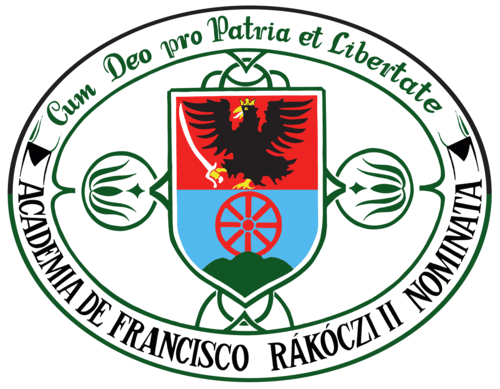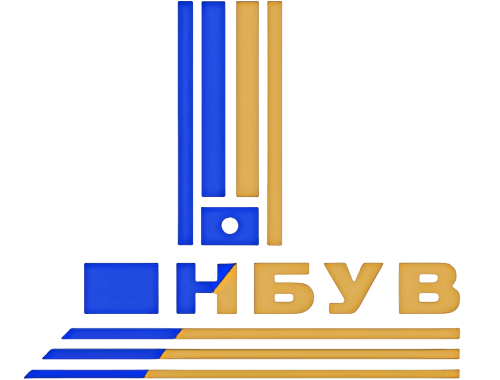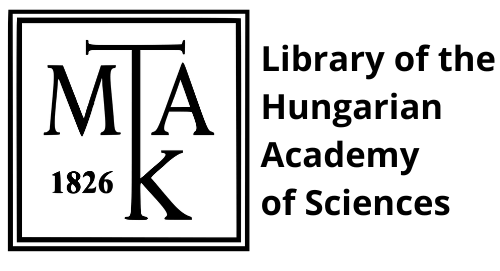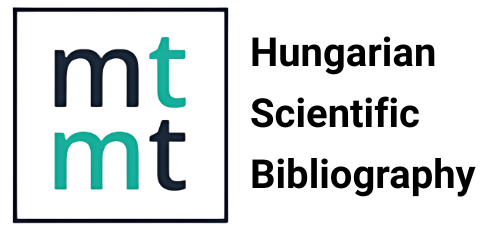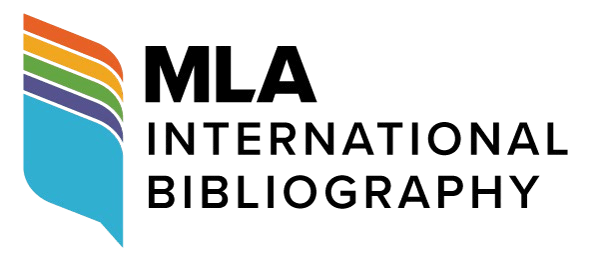Trapped in mystery and strangeness
(István Szilágyi: Far Over the Horizon)
DOI:
https://doi.org/10.58423/2786-6726/2022-2-256-280Keywords:
István Szilágyi, fiction, xenology, cultural studies, literary studiesAbstract
This paper explores the world of István Szilágyi's latest novel, Far Over the Horizon. The main character Mátyás Tompay Wajtha lives through the fall of the freedom fight, the “kuruc rebellion” as the confidant, secretary of Ferenc Rákóczi II. At the request of Rákóczi he starts writing his memoirs, but a tragedy casts shadows over his fate: his wife was lured away, she got into an accident, the ice broke under the sled. The secret of his wife being lured away and dying keeps him captive until the end of the novel. After the tragedy Tompay “estranges away” from his environment, home in the first part. The second part of the novel picks up the story about thirty years later, when Tompay judges cases brought before him already as the chief judge of Tipród county. His life is surrounded by secrecy and strangeness, and in the discussions “mind constructs” ahead of his age are revealed.
The analysis emphasizes the following characteristics: István Szilágyi words the important questions of defining and judging crime in an open, experimental novel format on the pages of Far Beyond the Horizon, interwoven with the fine web of motifs so characteristic of him. He does so on the one hand with a historic character, building on the tradition of witch trials. It appears as a serious moral dilemma, thinking in the scope of universal humanity, whether witches exist at all. Based on what preconceptions does one pass judgment? Who has the right to judge crimes that cannot be uncovered in their entirety? Mátyás Tompay Wajtha questions the borders of human knowledge, just to get from certain to uncertain every single time, through bitter experiences. Even in the trapped situation of Tompay he tries to see behind the secrets, discover the practicality behind the superstitions, beliefs, witchcraft, love charms and murders. Such interpretative horizons intersect excitingly in the conversations which at first sight we would think to be long obsolete for a man of today.
In my opinion, by focusing on the dynamics of strangeness, utilizing the relevant insights of xenology, culture and literary studies, following the system of criteria of close reading, I managed to reveal such structural problems, connection points hardly studied so far which might further nuance the statements of the reception and impact history so far.
References
Alexa Károly, 2003. Magyar történelem, magyar mitológia, A Hollóidőről és a Hollóidő ürügyén [Hungarian history, Hungarian mythology, About and on the pretext of Raven Time] In: Márkus Béla szerk. Tanulmányok Szilágyi Istvánról [Studies on István Szilágyi]. Debrecen: Kossuth Egyetemi Kiadó, 292–325. o. (In Hungarian)
Antal Balázs, 2020. A bíró könnyei [The judge's tears]. Helikon, 2020/14: 4–5. o. (In Hungarian)
Bahtyin Mihail, 2001. Dosztojevszkij poétikájának problémái [The problems of Dostoevsky's poetics]. Budapest: Gond–Cura – Osiris Kiadó. (In Hungarian)
Balázs Imre József, 2008. A történet egy guruló, vizes hógolyó (Balázs Imre József beszélgetése Szilágyi Istvánnal) [The story is a rolling, wet snowball (a conversation between Imre József Balázs and István Szilágyi)]. Hungaricum 2008/4: 14–19. o. (In Hungarian)
Codau Annamária, 2020. A mindent elnyelő nádas [The all-absorbing reeds], Könyvterasz [Book Terrace]. https://konyvterasz.hu/a-mindent-elnyelo-nadas/ (Accessed: 03 October 2022). (In Hungarian)
Csordás László, 2020. Horizontok metszéspontján [At the crossroads of horizons]. Szépirodalmi Figyelő [Literature Observer], 2020/3: 102–106. o. (In Hungarian)
Demény Péter, 2019. Életparton megülő horgászás [Live-aboard fishing]. Élet és Irodalom [Life and Literature], 2019. augusztus 2., https://www.es.hu/cikk/2019-08-02/demeny-peter/eletparton-megulo-horgaszas.html (Accessed: 03 October 2022) (In Hungarian)
Demény Péter, 2020. A bizonytalan tudás [The uncertain knowledge]. Élet és Irodalom [Life and Literature], 2020. október 30. https://www.es.hu/cikk/2020-10-30/demeny-peter/a-bizonytalan-tudas.html (Accessed: 03 October 2022) (In Hungarian)
Derrida, Jaques, 2014. Grammatológia [Grammatology]. Budapest: Typotex Kiadó. (In Hungarian)
Elek Tibor, 2003. A regényírás mint kísérletezés. Szilágyi Istvánnal Elek Tibor beszélget [Novel writing as experimentation. István Szilágyi in conversation with Tibor Elek]. Bárka [Ark], 2003/2: 87–93. o. (In Hungarian).
Falvai Mátyás, 2012. Szilágyi István: A regények valahogy kikényszerítették magukat [István Szilágyi: The novels somehow forced themselves]. Könyves Magazin [Book Magazine], 2012. július 23.
https://konyvesmagazin.hu/articles/show/szilagyi_istvan_a_regenyek_valahogy_kikenyszeritettek_magukat (Accessed: 03 October 2022, In Hungarian).
Förköli Gábor, 2021. A bőség zavara [The disorder of abundance]. Tiszatáj [Tisza Landscape], 2021/1: 86-88. o. (In Hungarian).
Gróh Gáspár, 2018. Külön világot járok, interjú Szilágyi Istvánnal [I walk a different world, interview with István Szilágyi]. Magyar Szemle [Hungarian Review], 2018/9-10. http://www.magyarszemle.hu/cikk/20181019_kulon_vilagot_jarok (Accessed: 03 October 2022, In Hungarian).
Gróh Gáspár, 2020a. A titok poétikája és metafizikája, Szilágyi István: Messze túl a láthatáron (1. rész) [The Poetics and Metaphysics of Mystery, István Szilágyi: Far Beyond the Horizon, Part 1]. Kortárs [Contemporary], 2020/9: 61–68. o. (In Hungarian).
Gróh Gáspár, 2020b. A titok poétikája és metafizikája, Szilágyi István: Messze túl a láthatáron (2. rész) [The Poetics and Metaphysics of Mystery, István Szilágyi: Far Beyond the Horizon, Part 2]. Kortárs [Contemporary], 2020/10: 57–63. o. (In Hungarian)
Hernády Judit, 2021. A beláthatatlan mélységek vonzása [The lure of the unseen depths]. Pannon Tükör [Pannonia Mirror], 2021/1: 74–77. o. (In Hungarian).
Józsa Márta, 2020. Kuruc kori énidő [Self-time in the Kuruc era]. Magyar Narancs [Hungarian Orange] 2020.12.02.
https://www.mmakiado.hu/upload/userfiles/1/recenziok/kiadvanyokrol/Szilágyi%3A%20Messze%20túl%20a%20láthatáron/szilagyi_kuruc_kori_enido_magyarnarancs20201203.pdf (Accessed: 03 October 2022, In Hungarian).
Kolozsi Orsolya, 2021. Az értelem fénye és a világ sötét sarkai [The light of reason and the dark corners of the world]. Bárka [Ark], 2021/1: 116–118. o. (In Hungarian).
Kristeva, Julia, 2010. Önmaga tükrében idegenként [A stranger in the mirror of himself]. Budapest: Napkút. (In Hungarian)
Márkus Béla, 2018. Szilágyi István [Istvan Szilagyi]. Budapest: MMA. (In Hungarian)
Márkus Béla, 2020. „borongós helyben tapodás” [„clomping in a gloomy place”], Helikon [Helicon], 2020/14: 6–9. o. (In Hungarian)
Maszárovics Ágnes, 2008. A hiábavalóság krónikása (Álom és példázat Szilágyi István A hóhér könnyei című regényében) [The chronicler of futility (Dream and parable in István Szilágyi's novel The Executioner's Tears)]. Studia Litteraria XLVI., 2008. http://ganymedes.lib.unideb.hu:8080/dea/bitstream/2437/99494/1/studia046.pdf (Accessed: 03 October 2022) (In Hungarian)
Nagy Imre, 2021. Egy veteránolvasó feljegyzéseiből [From the notes of a veteran reader]. jelenkor.net. http://www.jelenkor.net/visszhang/2050/egy-veteranolvaso-feljegyzeseibol (Accessed: 03 October 2022) (In Hungarian)
Papp Attila Zsolt, 2013. „Én szabad vagyok” Papp Attila Zsolt beszélgetése a 75 éves Szilágyi Istvánnal ["I am free" A conversation between Zsolt Attila Papp and 75–year-old István Szilágyi]. Helikon [Helicon], 2013/19: 2–4. o. (In Hungarian)
Szilágyi István, 1977. Hadban [In The Army]. Alföld [Lowland], 1977/7: 5–12. o. (In Hungarian).
Szilágyi István, 1980. A hóhér könnyei [Tears of the executioner]. Utunk Évkönyv ’80 [Our Journey Yearbook '80], 233–281. o. (In Hungarian).
Szilágyi István, 1982a. A hóhér könnyei [Tears of the executioner]. Alföld [Lowland], 1982/3: 7–30. o. (In Hungarian).
Szilágyi István, 1982b. A hóhér könnyei [Tears of the executioner]. Alföld [Lowland], 1982/4: 27–46. o. (In Hungarian).
Szilágyi István, 2020a. A láp (Részlet egy készülő regényből) [The Swamp (Part of a novel in progress)]. Helikon [Helicon], 2020/1, https://www.helikon.ro/a-lap-reszlet-egy-keszulo-regenybol/ (Accessed: 03 October 2022, In Hungarian).
Szilágyi István, 2020b. Messze túl a láthatáron [Far Over the Horizon]. Budapest: Magyar Művészeti Akadémia (In Hungarian).
Taxner-Tóth Ernő, 2021. Szilágyi István regényvilága a láthatáron innen és messze túlról [István Szilágyi's fiction from here and far beyond the horizon]. Hitel [Credit], 2021/1: 106–125. o. (In Hungarian).
Zs.[izsmann] E.[rika], 2020. Harminc éves szellemi műhely: a Helikon folyóiratot ünnepelték Kolozsváron [Thirty years of intellectual workshop: the Helikon journal celebrated in Kolozsvár]. https://maszol.ro/kultura/121651-harminc-eves-szellemi-m-hely-a-helikon-folyoiratot-unnepeltek-kolozsvaron (Accessed: 03 October 2022, In Hungarian).
Downloads
Published
How to Cite
Issue
Section
License
Authors retain copyright and grant the journal the right of first publication. The work is simultaneously licensed under a Creative Commons Attribution 4.0 International License (CC BY 4.0), which permits others to share the work with appropriate credit given to the author(s) and the initial publication in this journal.



